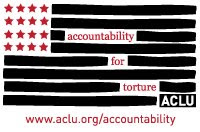Explains the Mosul turn-out...The Iraqi election commission backed off its initial estimate of 72% turnout rather quickly. It then suggested that 8 million voted, or 60%. I don't think they really know, and would be careful of using these figures until they can be confirmed as the vote is counted. I saw them on Arab satellite tv estimating the turnout in Irbil in the Kurdish north at 60 percent. The turnout in Irbil should have been very high, since it is Kurdish and security is good. If that figure is true and holds, it would be an argument against the overall voting rate being 60 percent.[...]
Evan Osnos of the Chicago Tribune writes,
'In the Sunni-dominated cities of Latifiyah and Mahmoudiyah south of Baghdad, streets were largely free of violence, but voters said they were fearful of retaliation for voting. Polling centers were largely empty all day in many cities of the Sunni Triangle north and west of the capital, particularly Fallujah, Ramadi and Beiji, The Associated Press reported. In Baghdad's mainly Sunni Arab area of Adhamiyah, the neighborhood's four polling centers did not open, residents said.'Dexter Filkins of the NYT wrote, ' In the town of Baji in northern Iraq, election officials did not show up. In Ramadi, where Iraqi officials set up a pair of polling places just outside the city, a total of just 300 ballots were cast, many of them by police officers and soldiers. '
The idea, mentioned by Condoleeza Rice on Sunday, that any significant number of Fallujans voted, is absurd and insulting. Most of the 250,000 Fallujans are still in exile, and the city is still occasionally the scene of fighting.
And talks about the Ayatollah's designs and status...In eastern Mosul, where Turkmen and Kurds predominate, there was some turnout, but in the Sunni Arab western part of the city, firefights raged. The Arabs of Kirkuk appear largely to have boycotted the vote, whereas the Kurds came out enthusiastically (-al-Zaman).
In another post, Cole reminds us that The Oaf of Office originally, and for a good while, strongly opposed free and fair elections in Iraq. The fact that he is now gloating over the "success" of the farce and threatening to spread this success all over the world marks another ignominious milestone in a thoroughly disgusting career.Muhammad Bazzi at Newsday discusses Grand Ayatollah Ali Sistani's role in the recent elections and his likely role in crafting the new constitution. He writes:'Al-Sistani is especially keen to have a role in shaping the new constitution, which is supposed to be drafted by mid-August and put to a national referendum by Oct. 15. He is concerned about two issues: the role of Islam in Iraqi society and the extent of the political autonomy that would be granted to Kurds in northern Iraq. The ayatollah wants Islam to be declared the country's official faith and Islamic law to infuse civil laws. He is also resistant to giving Kurds a veto power over the constitution, as they currently have under an administrative law put in place by the U.S. occupation. Part of the reason for al-Sistani's backing of the unified Shia slate is to assure him a key role in drafting the constitution.'Rory Carroll of the Guardian reports from Najaf that rubble is everywhere and some think Allawi will survive as Prime Minister. He quotes a Western diplomat: ' "Sistani has played it brilliantly . . . By reining in his radicals and going for elections, power is falling into the Shia lap." '
I'm just appalled by the cheerleading tone of US news coverage of the so-called elections in Iraq on Sunday. I said on television last week that this event is a "political earthquake" and "a historical first step" for Iraq. It is an event of the utmost importance, for Iraq, the Middle East, and the world. All the boosterism has a kernel of truth to it, of course. Iraqis hadn't been able to choose their leaders at all in recent decades, even by some strange process where they chose unknown leaders. But this process is not a model for anything, and would not willingly be imitated by anyone else in the region. The 1997 elections in Iran were much more democratic, as were the 2002 elections in Bahrain and Pakistan.
Moreover, as Swopa rightly reminds us all, the Bush administration opposed one-person, one-vote elections of this sort. First they were going to turn Iraq over to Chalabi within six months. Then Bremer was going to be MacArthur in Baghdad for years. Then on November 15, 2003, Bremer announced a plan to have council-based elections in May of 2004. The US and the UK had somehow massaged into being provincial and municipal governing councils, the members of which were pro-American. Bremer was going to restrict the electorate to this small, elite group.
Grand Ayatollah Ali Sistani immediately gave a fatwa denouncing this plan and demanding free elections mandated by a UN Security Council resolution. Bush was reportedly "extremely offended" at these two demands and opposed Sistani. Sistani then brought thousands of protesters into the streets in January of 2004, demanding free elections. Soon thereafter, Bush caved and gave the ayatollah everything he demanded. Except that he was apparently afraid that open, non-manipulated elections in Iraq might become a factor in the US presidential campaign, so he got the elections postponed to January 2005. This enormous delay allowed the country to fall into much worse chaos, and Sistani is still bitter that the Americans didn't hold the elections last May. The US objected that they couldn't use UN food ration cards for registration, as Sistani suggested. But in the end that is exactly what they did.So if it had been up to Bush, Iraq would have been a soft dictatorship under Chalabi, or would have had stage-managed elections with an electorate consisting of a handful of pro-American notables. It was Sistani and the major Shiite parties that demanded free and open elections and a UNSC resolution.








No comments:
Post a Comment
Comments are moderated. There may be some delay before your comment is published. It all depends on how much time M has in the day. But please comment!